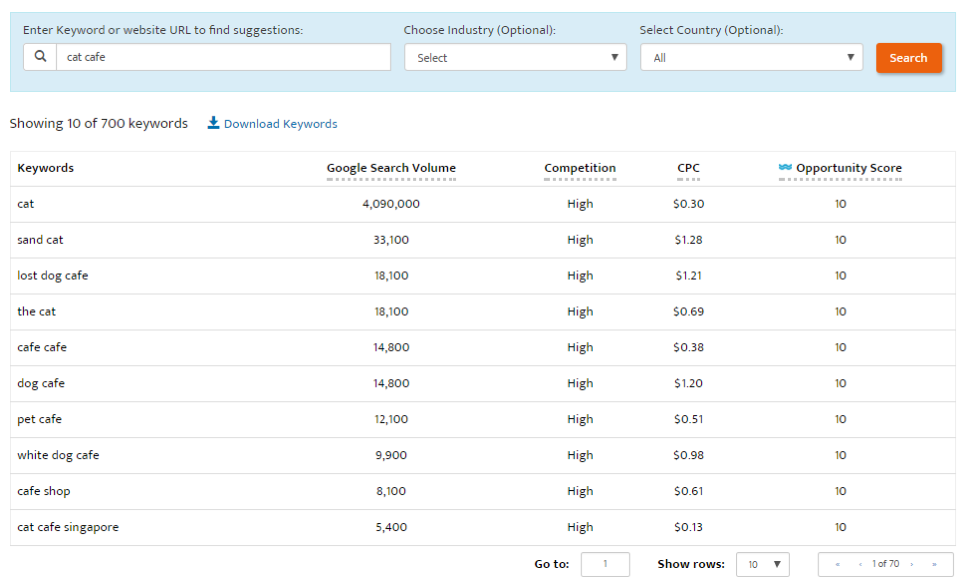
Internet Search: What Is an Internet Search?
An internet search, otherwise known as a search query, is an entry into a search engine that yields both paid and organic results. The paid results are the ads that appear at the top and the bottom of the page, and they are marked accordingly. The organic results are the unmarked results that appear in between the ads.
At the core of an internet search is a keyword. In turn, keywords are at the hearts of search engine marketing (SEM) and search engine optimization (SEO).
Internet Searches and Search Engine Marketing (SEM)
Search engine marketing, also known as paid search, is the practice of advertising on search engine results pages (SERPs). All the major search engines offer ad space, and the most prominent platform is Google Ads (formerly known as AdWords). Google Ads is a pay-per-click platform: an advertiser pays every time someone clicks on its advertisement.
Let’s talk more about a term we sort of brushed past: keyword. A keyword is any word or phrase within a search query that an advertiser considers relevant to its business.
As such, search advertisers bid on certain keywords in order to make their ads eligible for display when those keywords are searched. For example, say Nike bids on the keyword “running shoes.” Whenever someone Google searches “mens running shoes” or “running shoes for kids,” Nike is entered into an automated auction to determine which advertisers get the prime, top-of-page-one spots. You can read more about the Google auction here.
As you can see, it all starts with the search query. If you’re interested in paid search advertising, make sure to keep up with the WordStream blog to learn everything you need to know.
Internet Searches and Search Engine Optimization (SEO)
You can think of search engine optimization as unpaid search marketing – SEM’s free cousin. Essentially, SEO is a collection of diverse practices with a single common goal: improving your performance in the organic (non-advertisement) search results. To put it even more simply, strong SEO gets your website on page one. And if you’re not on page one, what’s the point?
Once again, it all starts with a search query and a keyword. Similar to SEM, businesses that practice SEO focus on keywords relevant to them and try to rank as highly as possible.
Well, think about Google’s business model. It attracts consumers by offering an immense, instantaneously accessible index of information. Then, it sells SERP real estate to advertisers. Google’s attraction of consumers rests on its capacity to produce high-quality, relevant search results. If the results aren’t helpful, consumers abandon Google, and Google loses ad money.
This is informative. In order to rank highly in the organic results, you need to be a quality resource. To be more precise, you need to be an authoritative resource. In the eyes of Google, you attain Domain Authority every time a reputable website links to your website. The more links you earn from external resources, the more authoritative your website becomes, and the better you perform in organic search results.
You need to be a relevant resource, too. Relevance to a particular search query comes from optimizing your content for a keyword within that query. If you want your blog post to organically rank for the keyword “lawn care basics,” you better make sure those words appear in the title, the URL, the headings, the subheadings, the body copy, the image names, and the alt texts. This ubiquity, as long as it’s not overdone (keyword stuffing), signals to Google that your page is relevant to the search query. If you’re authoritative, your blog will rank well.
